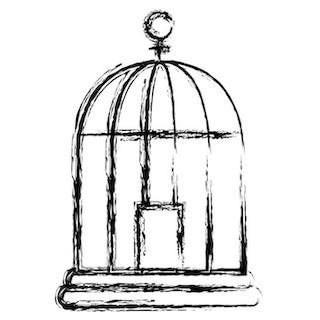Enclosures as Catalyst
The forces of enclosure are only as powerful as we let them be.
There are times when the pleasure and satisfaction of writing get rudely interrupted by reality, theoretical discussion gets a good working over by issues of practicality, and we’re left humbled but inspired.
Such was the case yesterday morning, as, sat with a group of young professionals, we watched as a millionaire Prime Minister urged them to “hold their nerve” on interest rates so that the “plan could work”. It reminded me of the poignant final episode of Rowan Atkinson’s Blackadder. Generals back at headquarters instructing troops to go “over the top” into machine gun fire because “they had a plan”. (The response in the room was neatly summarised by another comedian, Ben Elton, in perhaps one of the most fluent, articulate expressions of outrage I have witnessed.)
What it focused me on, though, is how we give people “going over the top” every day an opportunity to explore routes to the values of the artisan, of work as personal identity and social contribution, whilst they have little immediate choice other than to face the bullets of current economic circumstance. Writing about it is one thing, enabling it another.
Recent weeks have begun to suggest a “where”, a “third place” that provided both sanctuary and resource, but “How?” is a very individual thing. There are no courses, no training, no universal panacea. It cannot be homogenized. It is the hard work of the soul.
A piece by Chris Corrigan reminded me of the beauty of constraints, and how we can turn them to advantage. To make membranes more permeable and find the gaps in the rules and processes of the corporate cage, to find areas where we can exercise our artisan. To make elements of our job, no matter how mundane, more meaningful on our own terms, and in so doing, build our skills portfolio. We can do it in the emails we send, in the attention we pay to colleagues, and in the feel of our workplace, whether at home or office. We can experiment. Sneak our identity into our work.
As the qualities we are valued for move from knowledge, qualifications and compliance to those that are harder to measure - creativity, personal leadership, communication, empathy and other areas that provide the energy that holds people together, these capabilities matter. Organisational design has long been dominated by logic - cost, efficiency and control, but today these aspects are looking very fragile. From the conversations I am having, I get the impression that large organisations are hollowing out. Elvis is leaving the building. If you find yourself, like me, listening to the shipping forecast on Radio Four at 05:30, you will be familiar with the notion of weather fronts “losing their identity”. (I imagine then going around wailing, “I don’t know who I am anymore”. It’s probably the early hour). A lot of organisations have something of that about them.
So, just another thought from my morning journaling. “Third Place” as a location, the catalytic power of constraints as a topic. Conversation as a catalyst.
Work is changing; to what is not yet clear. As what can be reduced to data becomes the province of technology, our role as sense-makers lies increasingly in what cannot.
It means we should practice.



Interesting comment from James
https://www.linkedin.com/posts/james-gairdner-1192a76_founders-scaleups-succession-activity-7078990268112216064-ZFlE?utm_source=share&utm_medium=member_ios
Great insight!